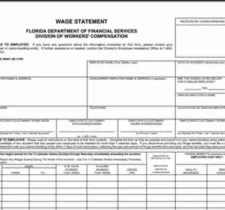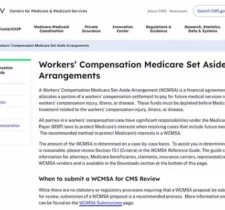Forced use of PTO in Workers’ Compensation Claims
An issue presents in Florida workers’ compensation claims with forced use of PTO, or when in lieu of workers’ compensation benefits – pay is continued by the employer (and not the insurance company), but it docked from the claimant’s personal, accrued/earned time. In the course of my practice, I have seen situations where employers continue full pay of the injured worker while he/she is out of work, but that is not legally required. This is nice for the injured worker and admirable of the employer, to go above and beyond what is required, for the recuperation period of the injured employee. However, in other situations, I have seen where an employee is unable to work because of being “totally off work” or in a light duty status and the employer forces the injured worker to use his or her own PTO to continue weekly pay—and the person does not receive pay from workers’ compensation benefits. That may be an error, depending on the circumstances, and further inquiry is warranted.
In the case of Medina v. Miami Dade Cnty, 300 So. 3d 255 (1st DCA 2020), Mr. Medina had an authorized surgery through workers’ compensation. He was paid temporary total benefits by workers’ compensation, but then he was released to light duty and workers comp did not pay him; he received “full pay” from his employer. The only problem is the “full pay” from the Employer payroll was docked against Claimant’s bank of PTO – personal sick or leave time. For those periods, the adjuster issued checks directly to the Employer for reimbursement of amounts due under workers’ compensation. The adjuster thought the time would eventually be “reinstated” to Mr. Medina.
The problem presented here is the injured worker used his accrued PTO to receive pay while he should have been paid by workers’ compensation.
Mr. Medina brought the issue before the court seeking the payment of indemnity benefits for the period he used his personal PTO.
The trial judge essentially sided with the insurance company based on the fact “As he was paid salary and used sick and vacation time for certain periods, I accept E/C’s acknowledgment that he is entitled to have those periods reinstated to his sick/vacation bank in accordance with [Employer] policies.”
Mr. Medina challenged the denial to the First District Court of Appeal. The 1st DCA reversed the judge’s denial because the sick and vacation leave that was paid constitutes an employer-provided alternative benefit that cannot be used to avoid paying workers’ compensation. The case was sent back to the trial court for further findings.
The court placed much emphasis on the section of 440.09(1) stating “the employer must pay compensation or furnish benefits required by this chapter if the employee suffers an accidental compensable injury.”
In Mr. Medina’s case, the record established that he received full wages but only by paying himself through personal sick leave. No evidence was introduced that the Employer “bought back” Claimant’s sick leave or that the alternate benefits were employer provided. I do believe it would be a different outcome had the workers’ compensation benefits been paid and the employer “credited” the time to his personal bank.
This issue is extremely fact specific, and may depend on several factors:
- If the PTO is credited back
- If the PTO is funded by the employer or employee’s bank.
- If the trade off is clearly understood by the parties, i.e. light duty is available, but the employee opts to elect full pay from a bank
Whether workers’ compensation can be forced to pay benefits when an employee has been forced to take PTO can be extremely fact specific.









